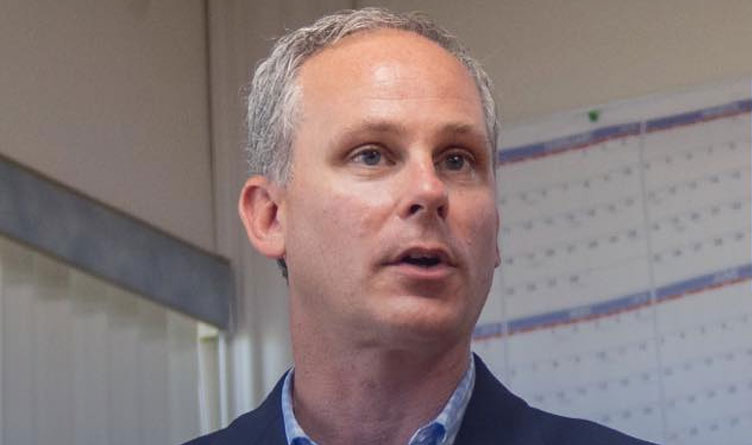Photo: Sen. John Stevens, R-Huntingdon Photo Credit: Senator John Stevens / Facebook
The Center Square [By Jon Styf] –
As Tennessee officials get closer to presenting a new state funding proposal for K-12 public education, at least one state senator is concerned about the costs of record-keeping in the new plan.
“The way the bill is going to read, the state is going to give a capitated rate per student to the district and then, for rural schools or economically disadvantaged schools or schools with high amounts of English as a second language, they give bonuses basically,” said Sen. John Stevens, R-Huntingdon, a member of the Rural and Small District Subcommittee – one of 18 subcommittees under a steering committee involved in reviewing the state’s school funding formula. “Extra money for these extra things that you do.”
“Now you’ve just increased your administrative costs too because you’re going to have to prove how many students you have or how many English language learners. So the [Department of Education] is going to need staff to review your application, the local (district) is going to have to hire people to make the application. Here we go again. No teachers are going to get pay raises, and we’re going to have a bunch of administrative bloat within all these districts. So inefficient.”
Department of Education Commissioner Penny Schwinn provided an update on the department’s process of creating a new funding formula Dec. 21 to Gov. Bill Lee, who called for a review the state’s K-12 education funding model in October.
The department held eight public town halls and eight meetings with local leaders on local matching of state funds related to the new formula, which would replace the current Basic Education Program (BEP), which was created in 1992.
If and when the funding formula change occurs, Tennessee would become one of 39 states with a student-based funding formula. Instead of receiving funds based on the district’s characteristics, the schools would receive a set amount of funding for each student and bonuses based on the student’s learning characteristics.
Stevens, like others, is concerned that local governments pay their portion along with the state, which budgeted to spend $5.6 billion in state funding on K-12 public education this fiscal year.
In the local match meetings, the state presented feedback it had received during the process, saying local school leaders most often are looking to hire nurses, counselors and school psychologists, and smaller districts are looking to fund a full principal position at each school with an increase in teacher salaries and benefits.
“What a lot of these superintendents are talking about are … we need the state to pay for more of the cost of public education because local and county commissions don’t give them any money,” Stevens said. “They don’t want to pay for things that the school system wants to do.”
Stevens suggested the state should give less state sales tax money to local governments that do not properly support education with a funding match.
***Click HERE to support Conservative Journalism in Tennessee. We can’t bring you stories like this without your support!***
In its presentation at the local match meetings, the Department of Education proposed “local districts may see more state funding in a new formula, but local communities would not have to contribute anything additional for at least five years.” After a one-year discussion period on local match, based on the new funding formula, that then “gives a 4-year runway before local implementation.”
At an average of $11,328 per student in 2020-21, Tennessee currently ranks 45th in public school funding, according to the National Education Association.
“I’m not just going to give the locals a windfall by absorbing the costs that they’re supposed to pay for without them having some skin in the game,” Stevens said. “Because all the schools want to do is hire more people.”

About the Author: Jon Styf, The Center Square Staff Reporter – Jon Styf is an award-winning editor and reporter who has worked in Illinois, Texas, Wisconsin, Florida and Michigan in local newsrooms over the past 20 years, working for Shaw Media, Hearst and several other companies. Follow Jon on Twitter @JonStyf.





